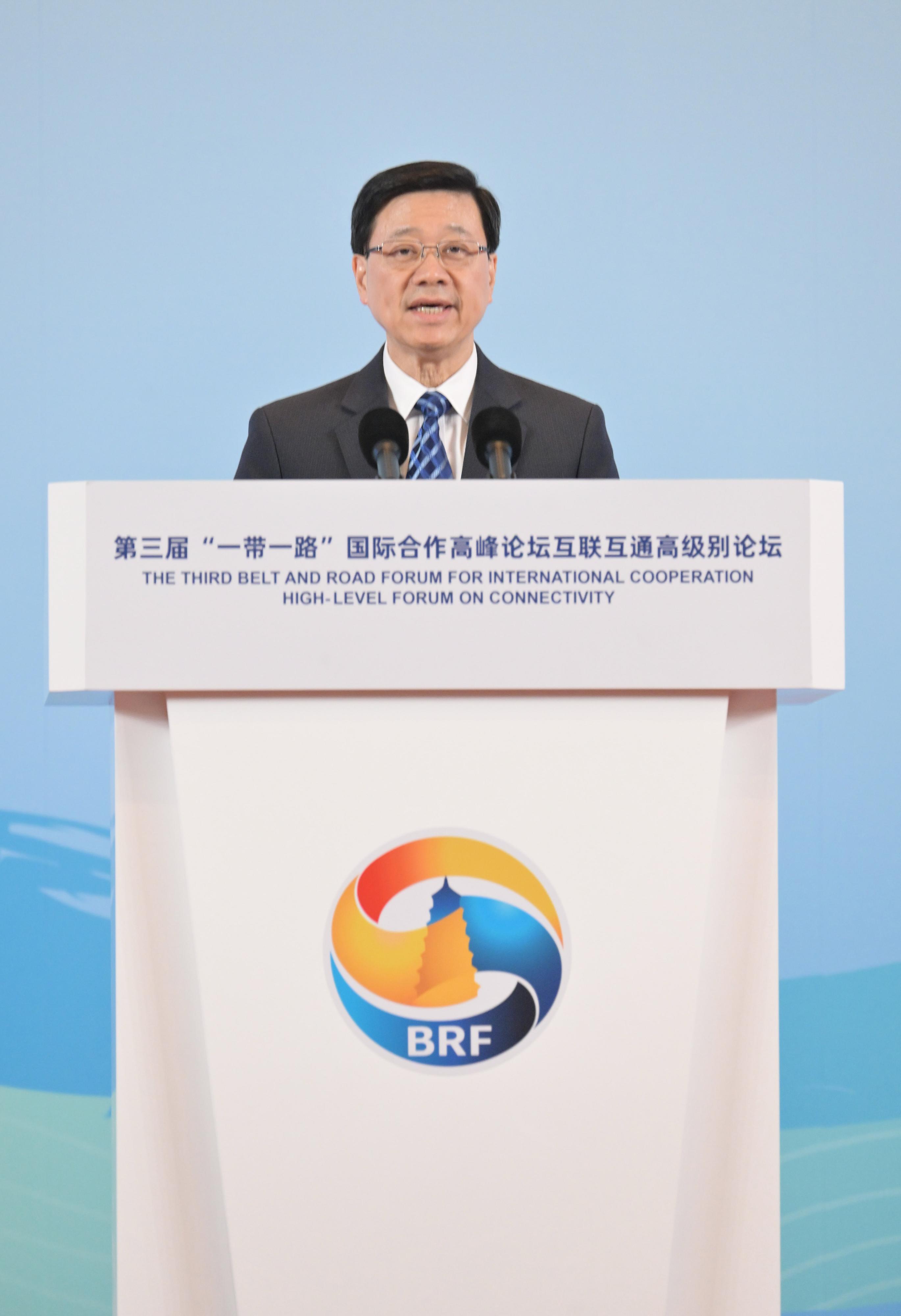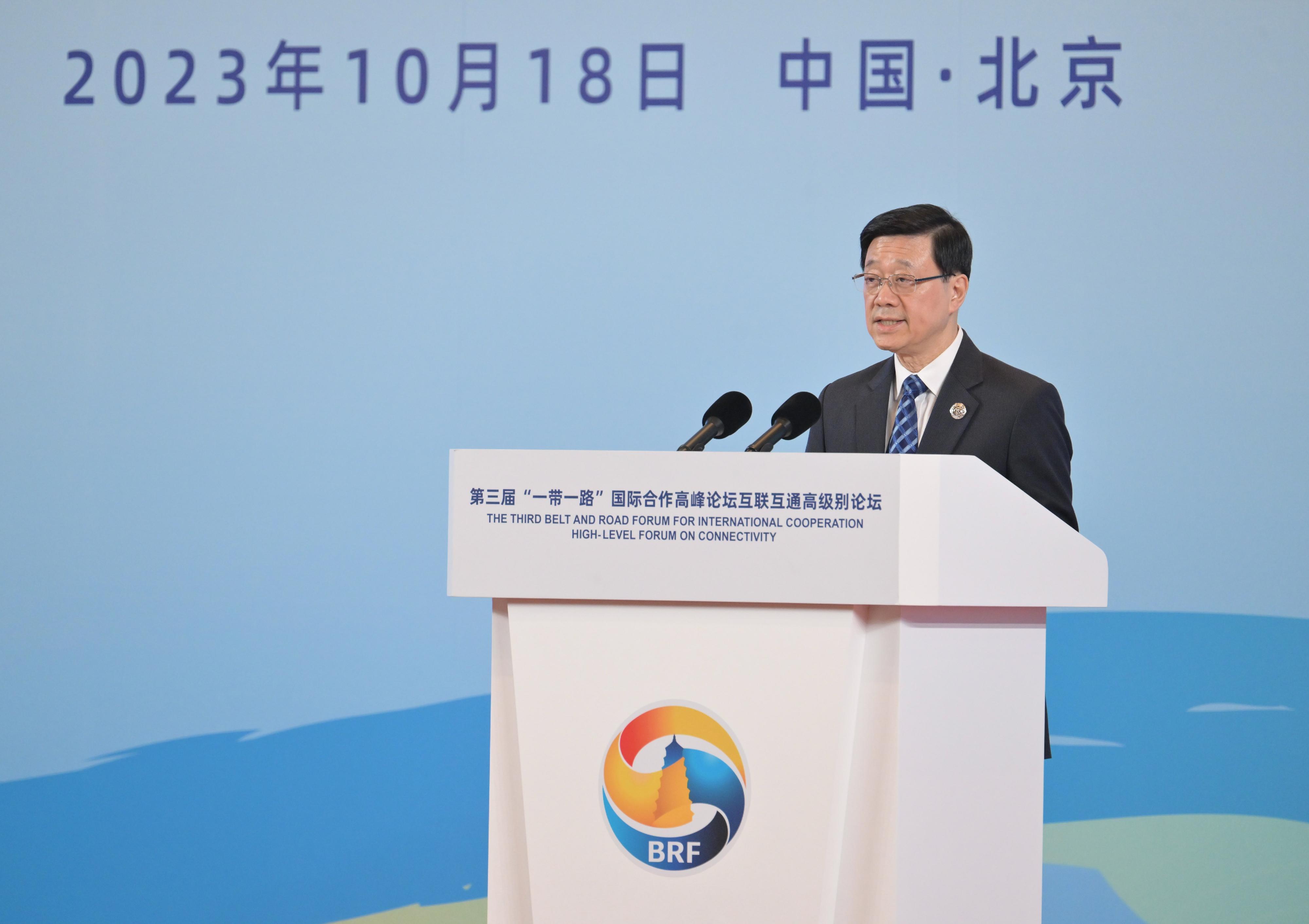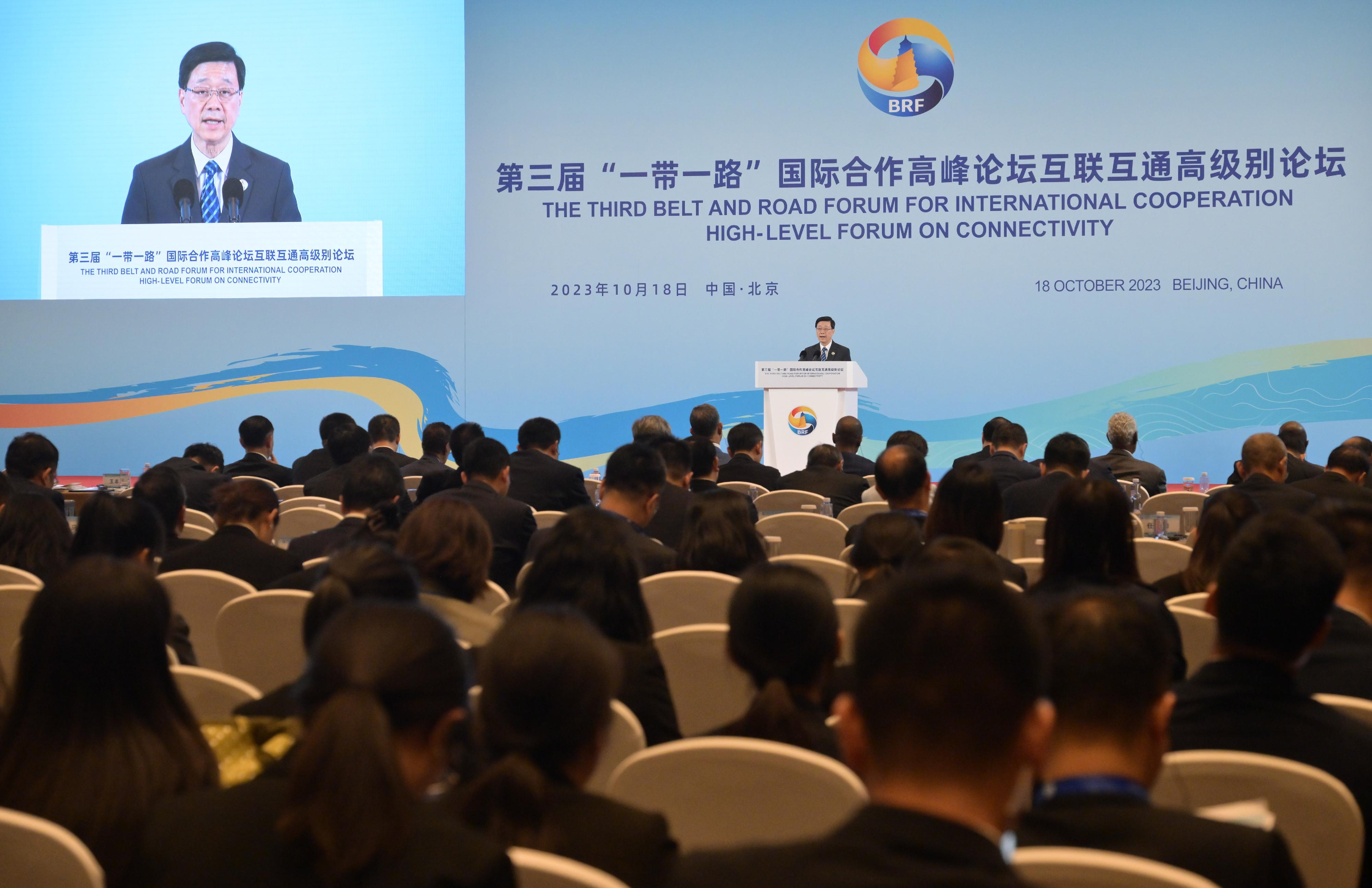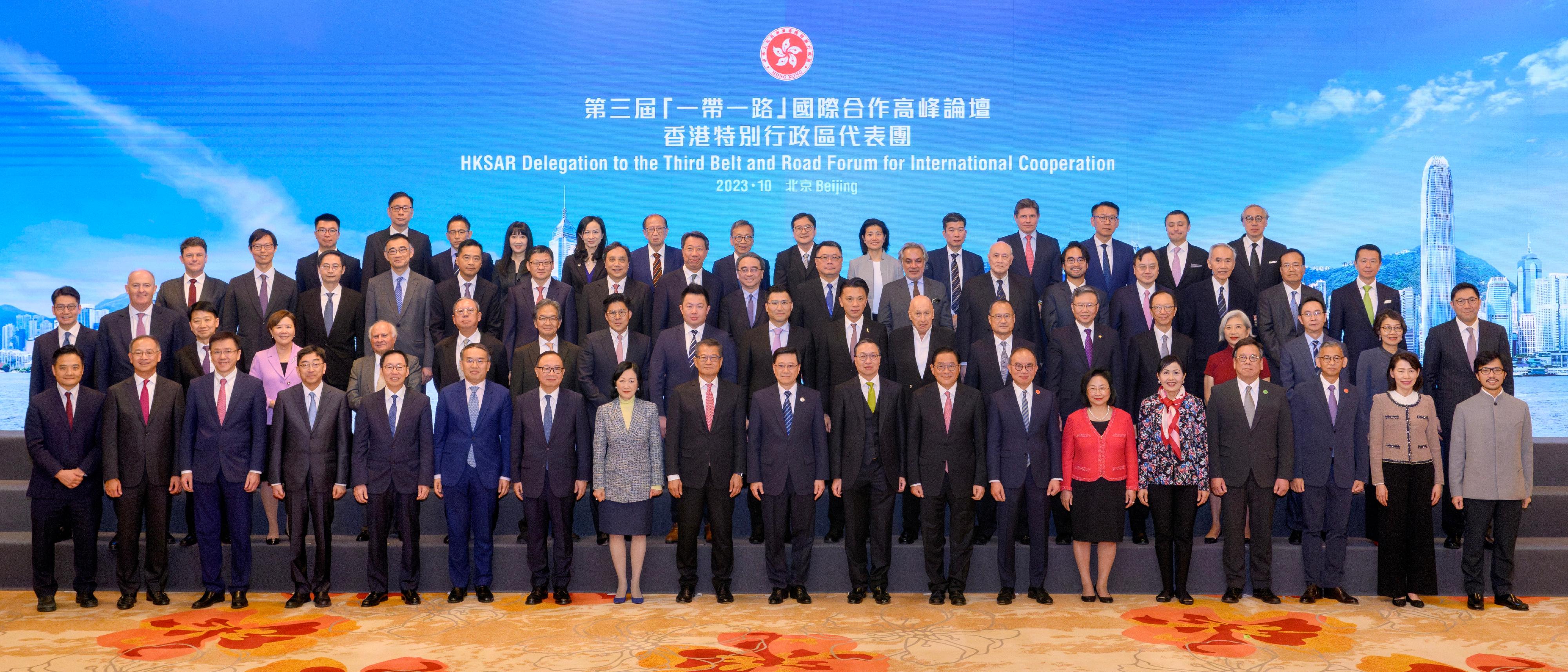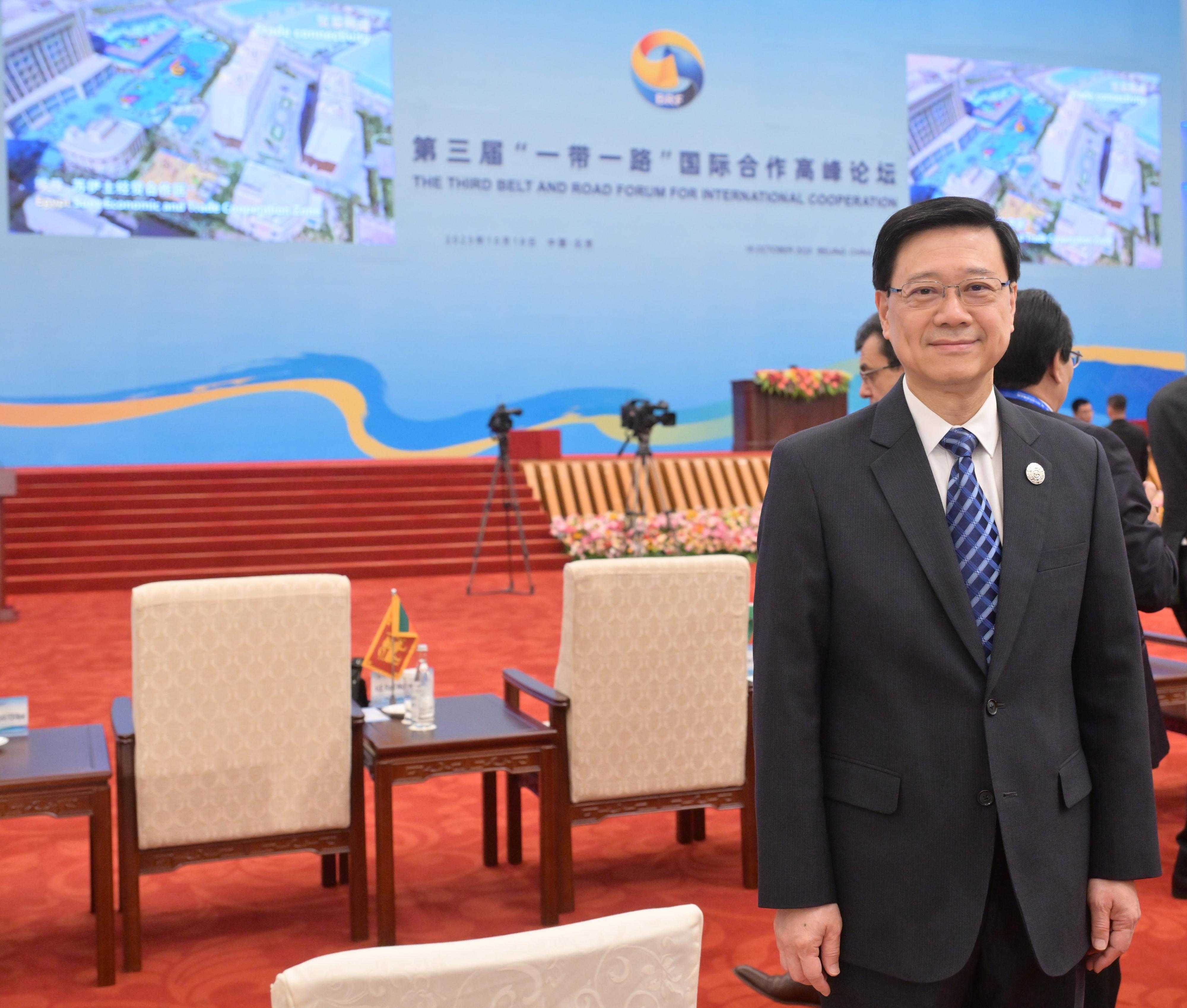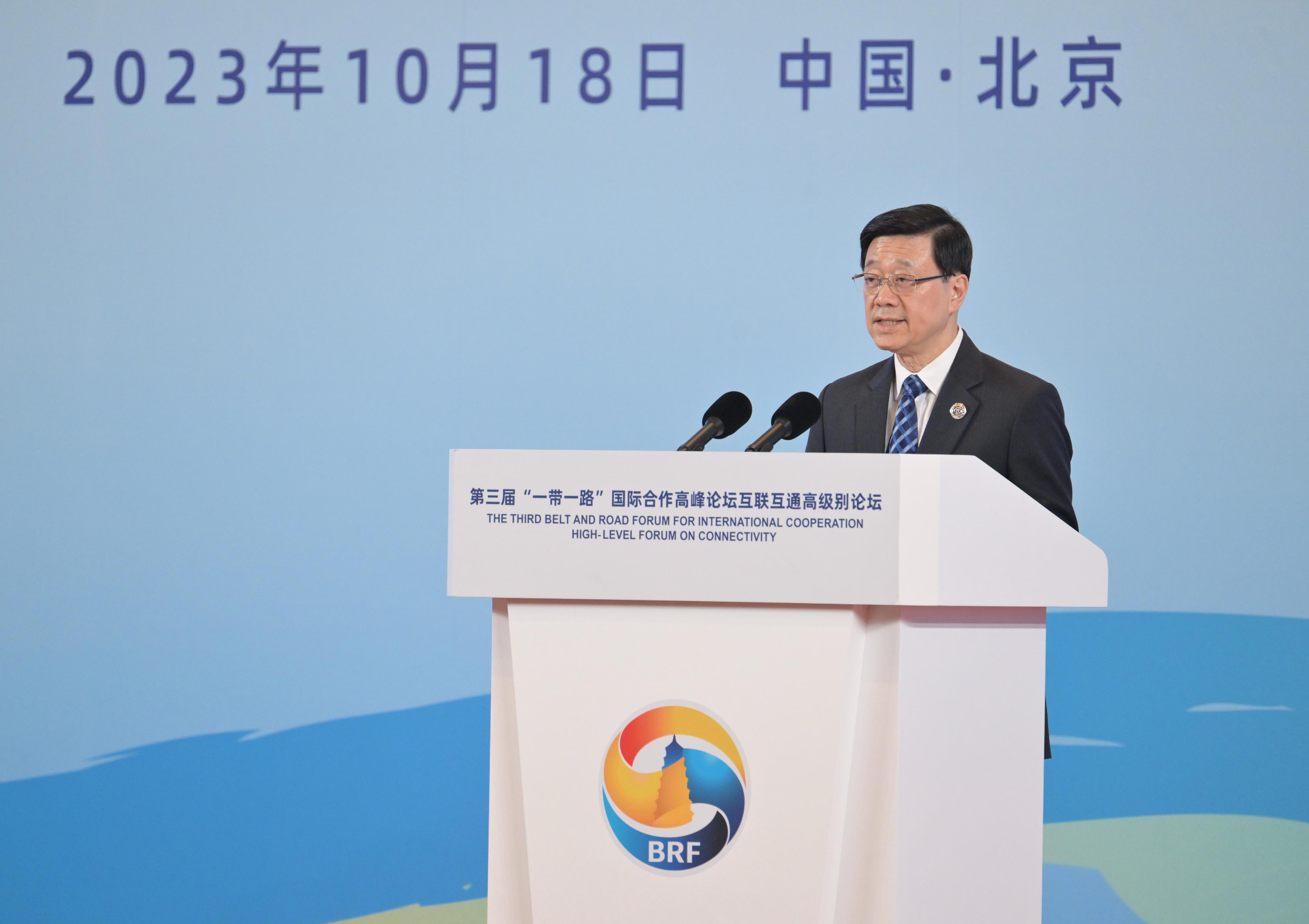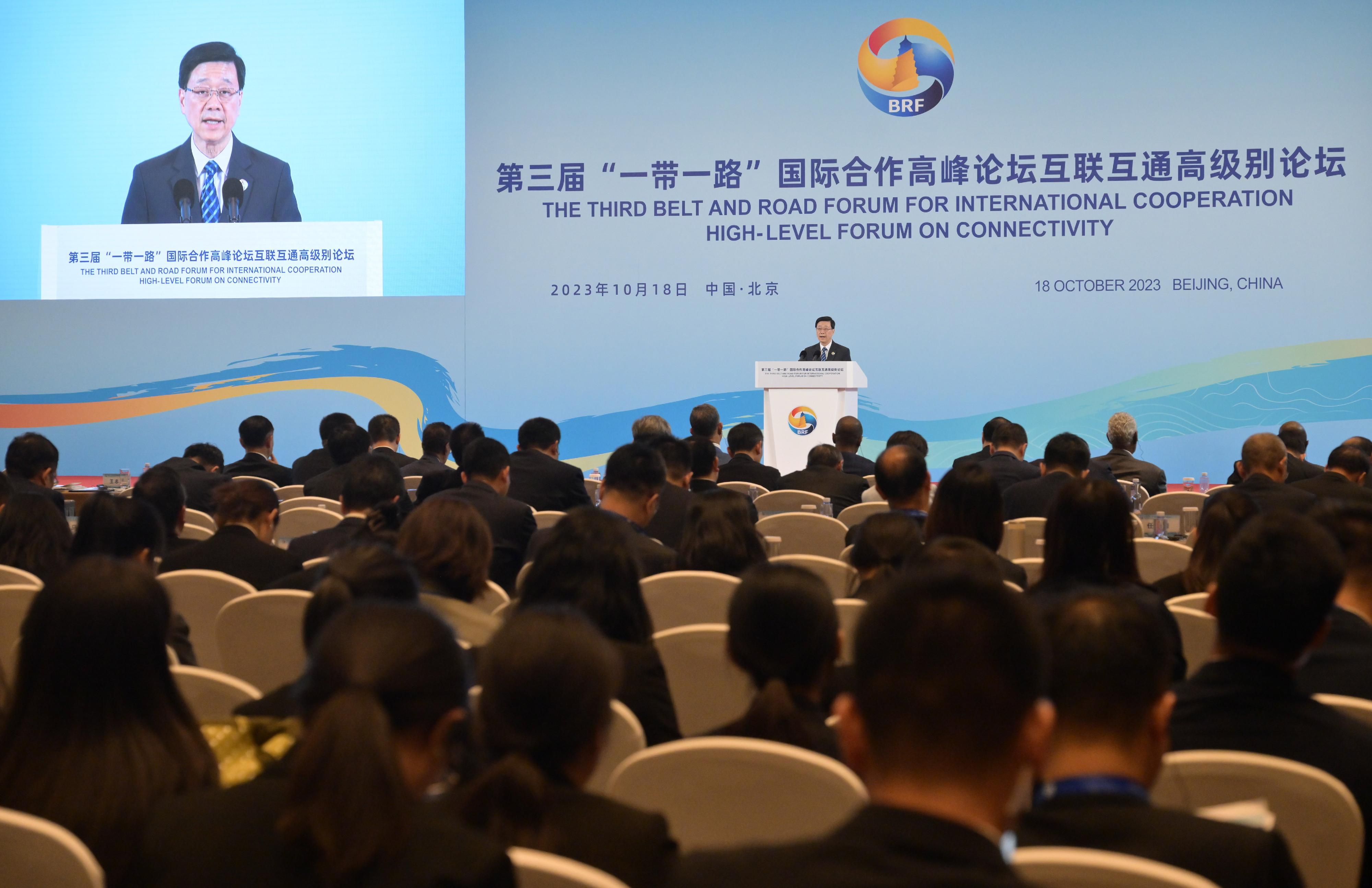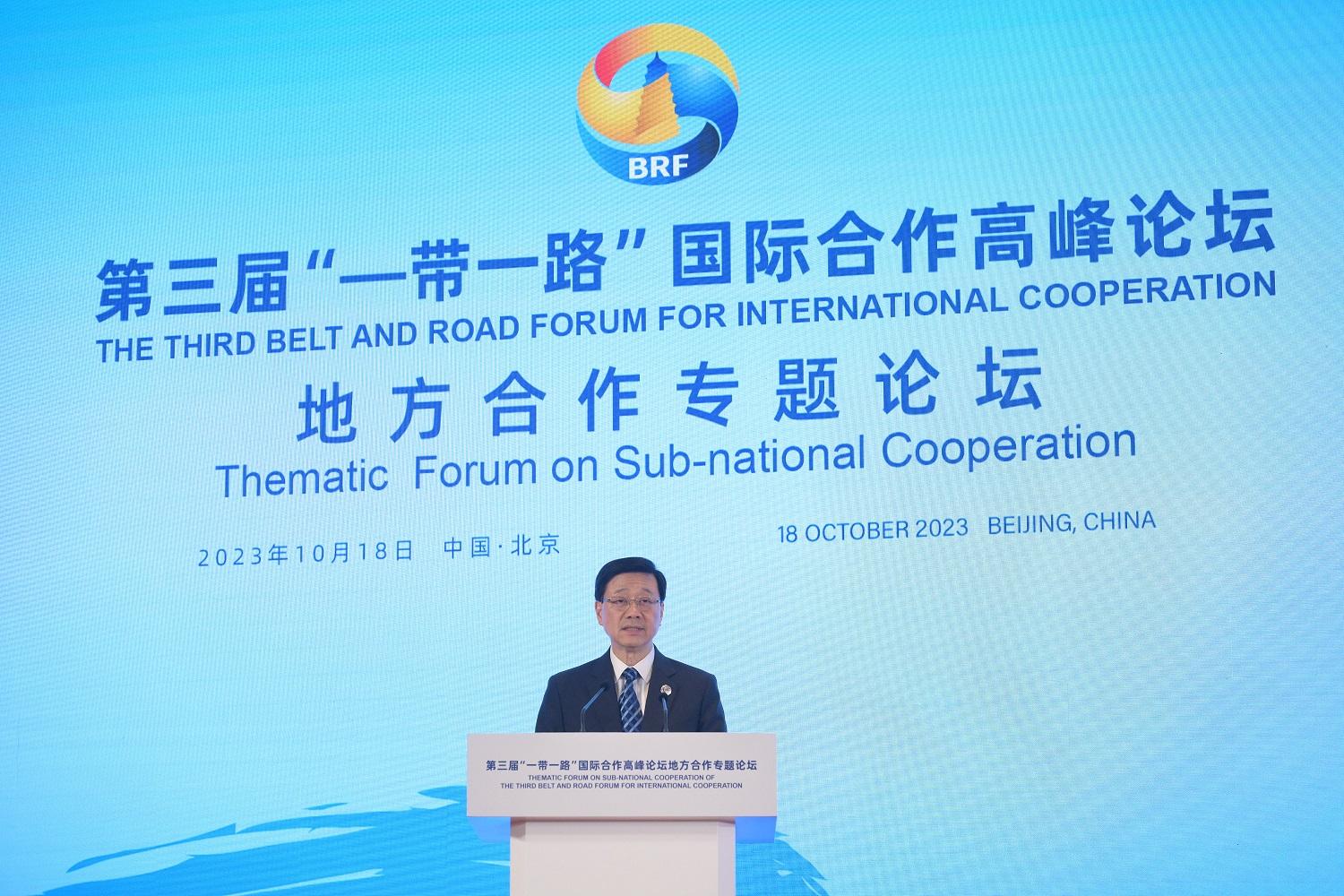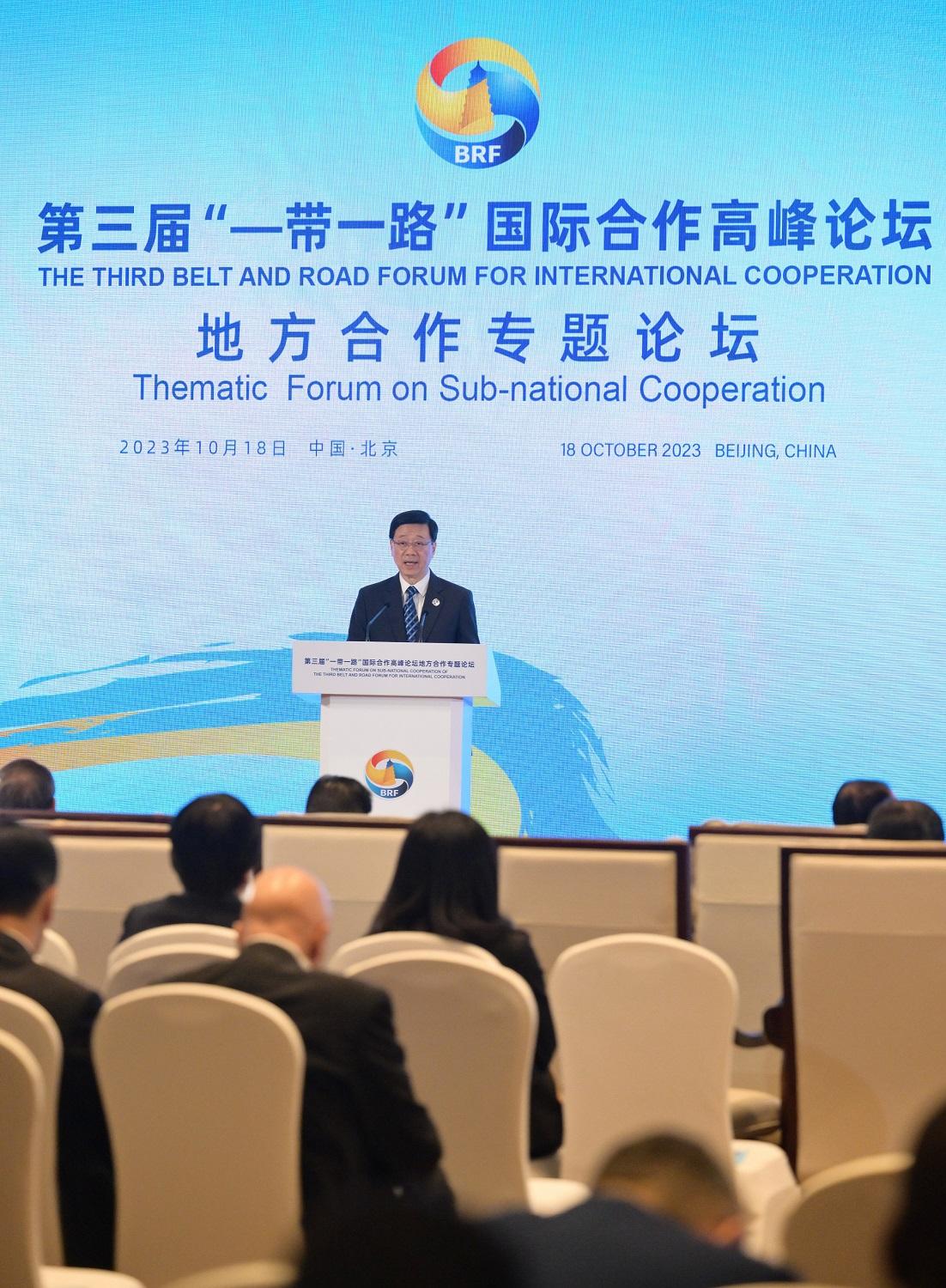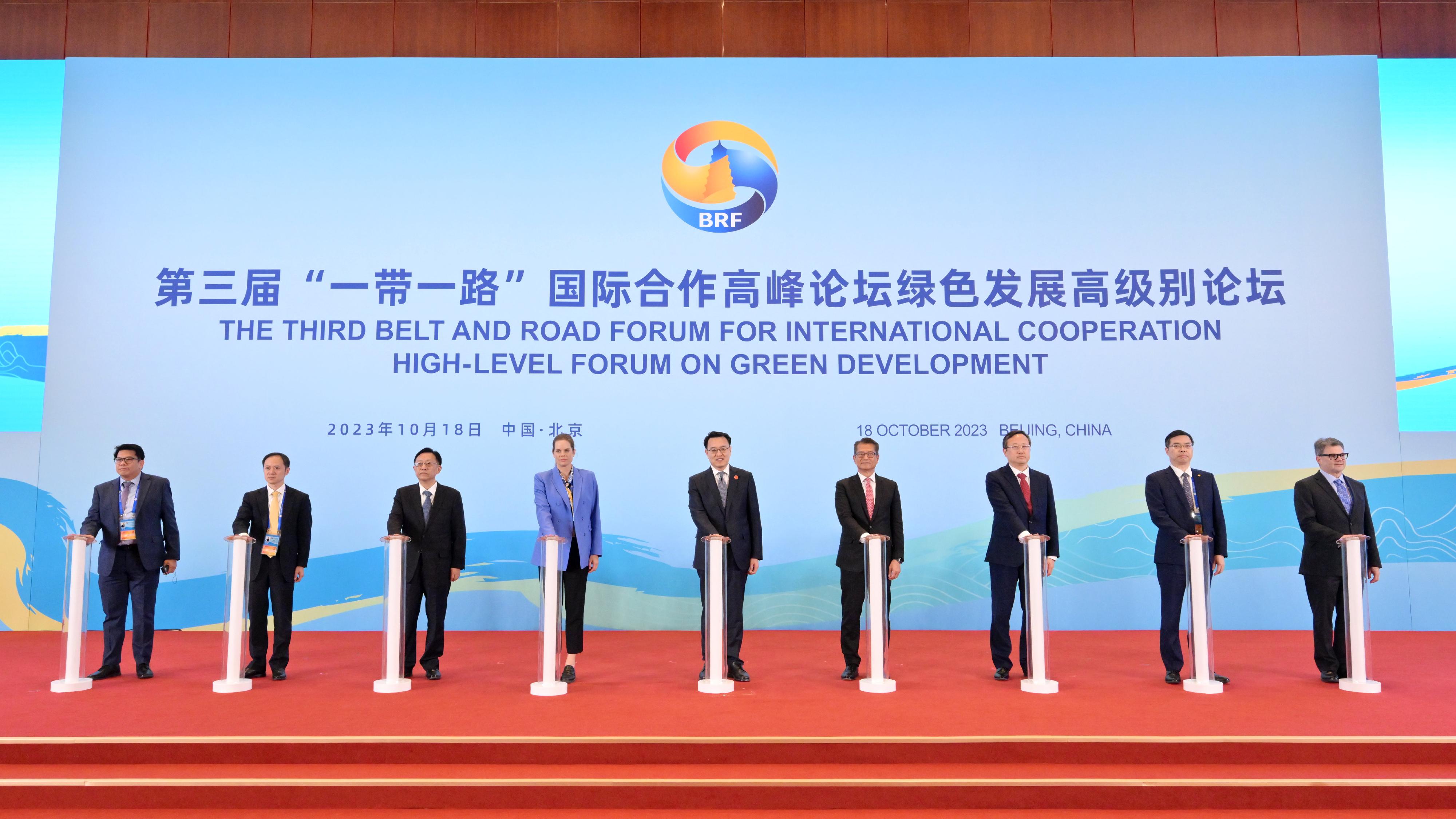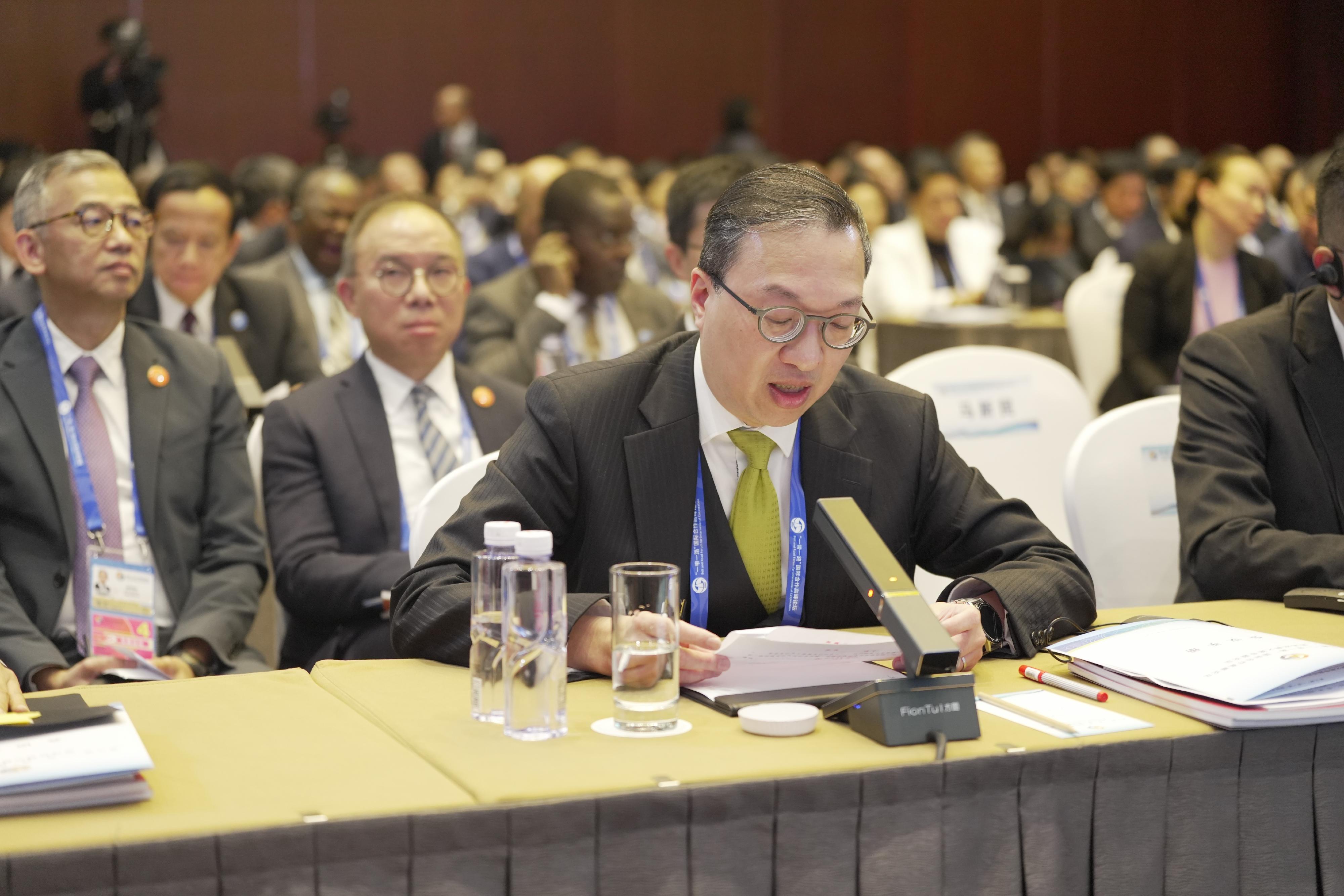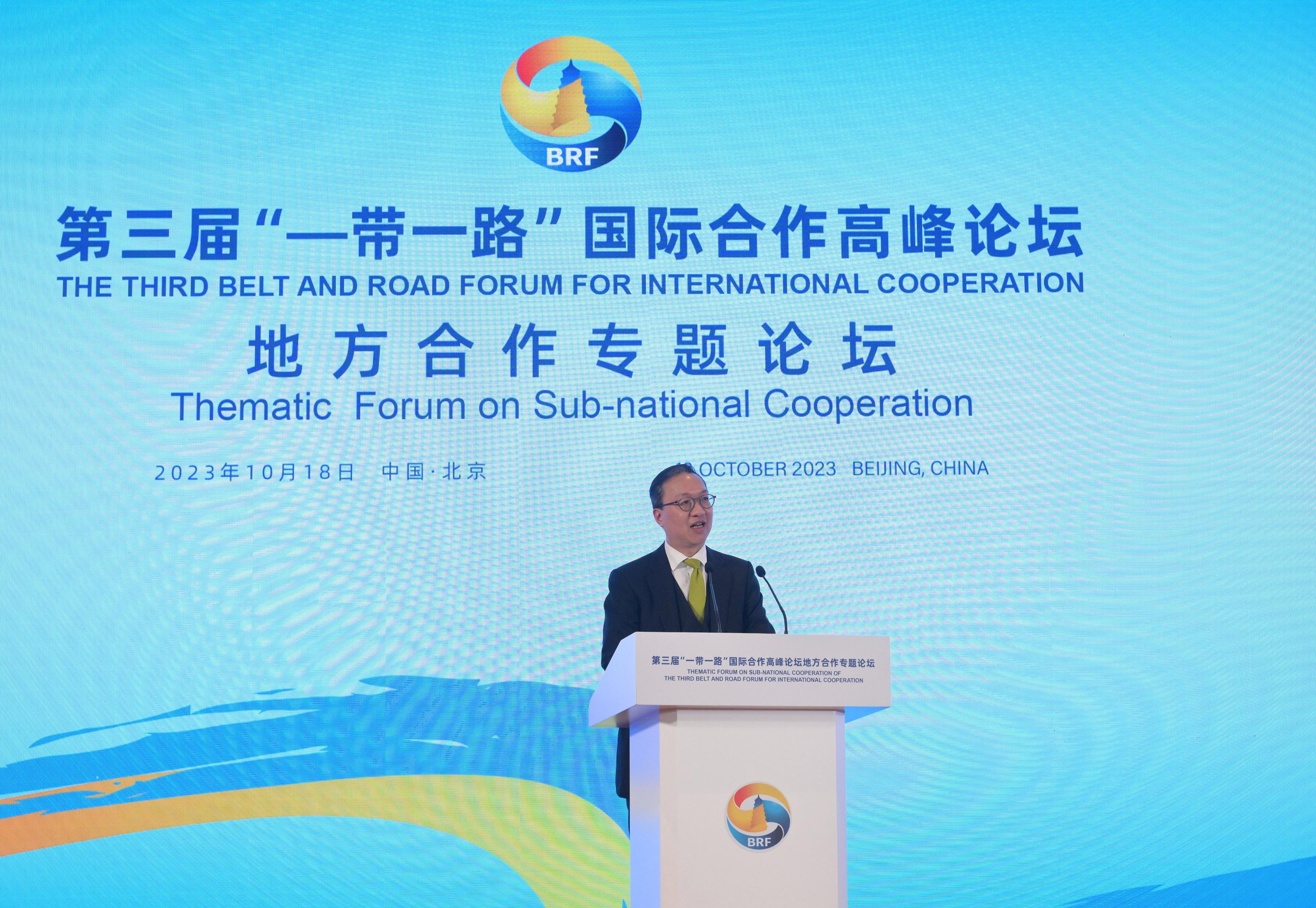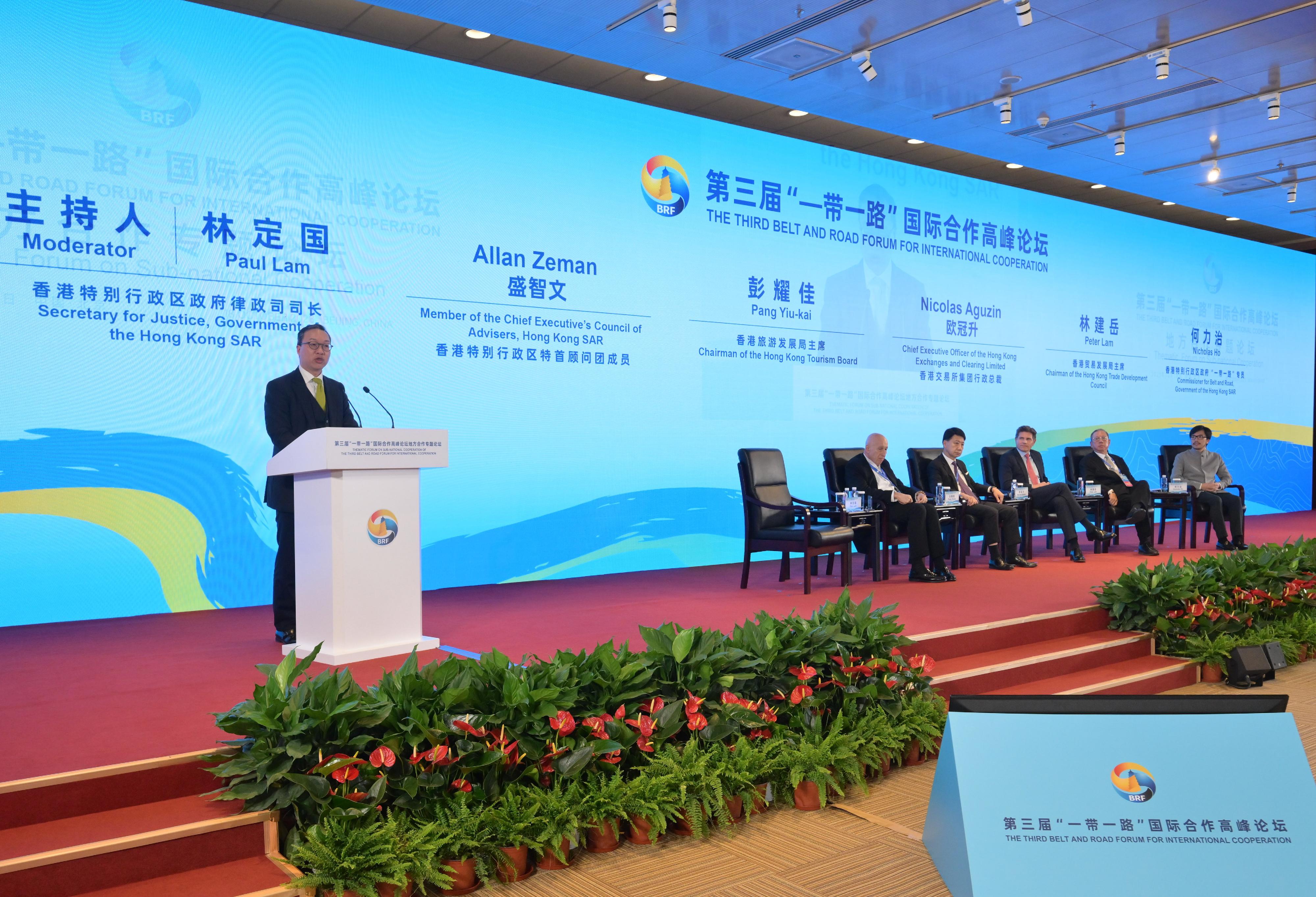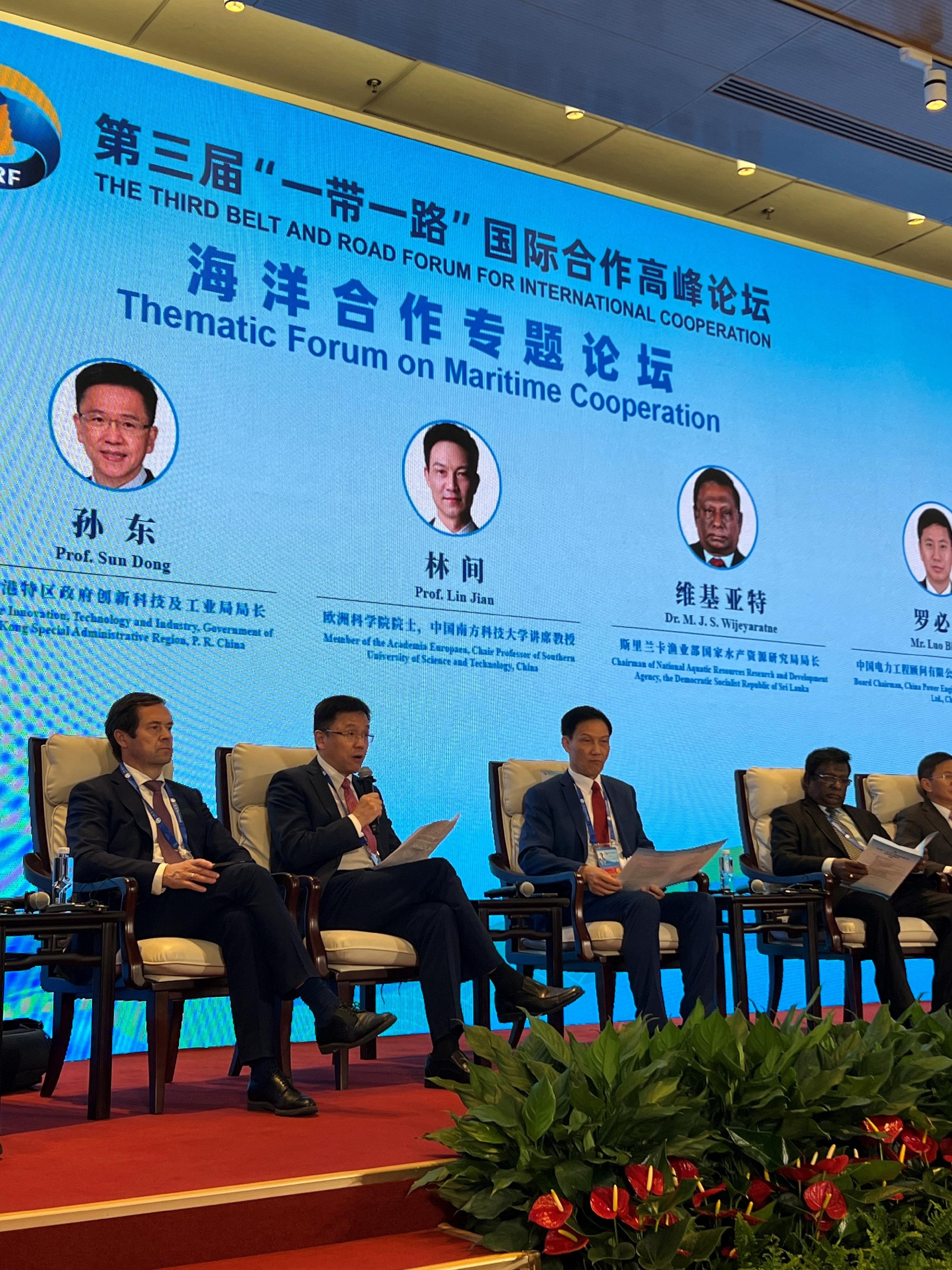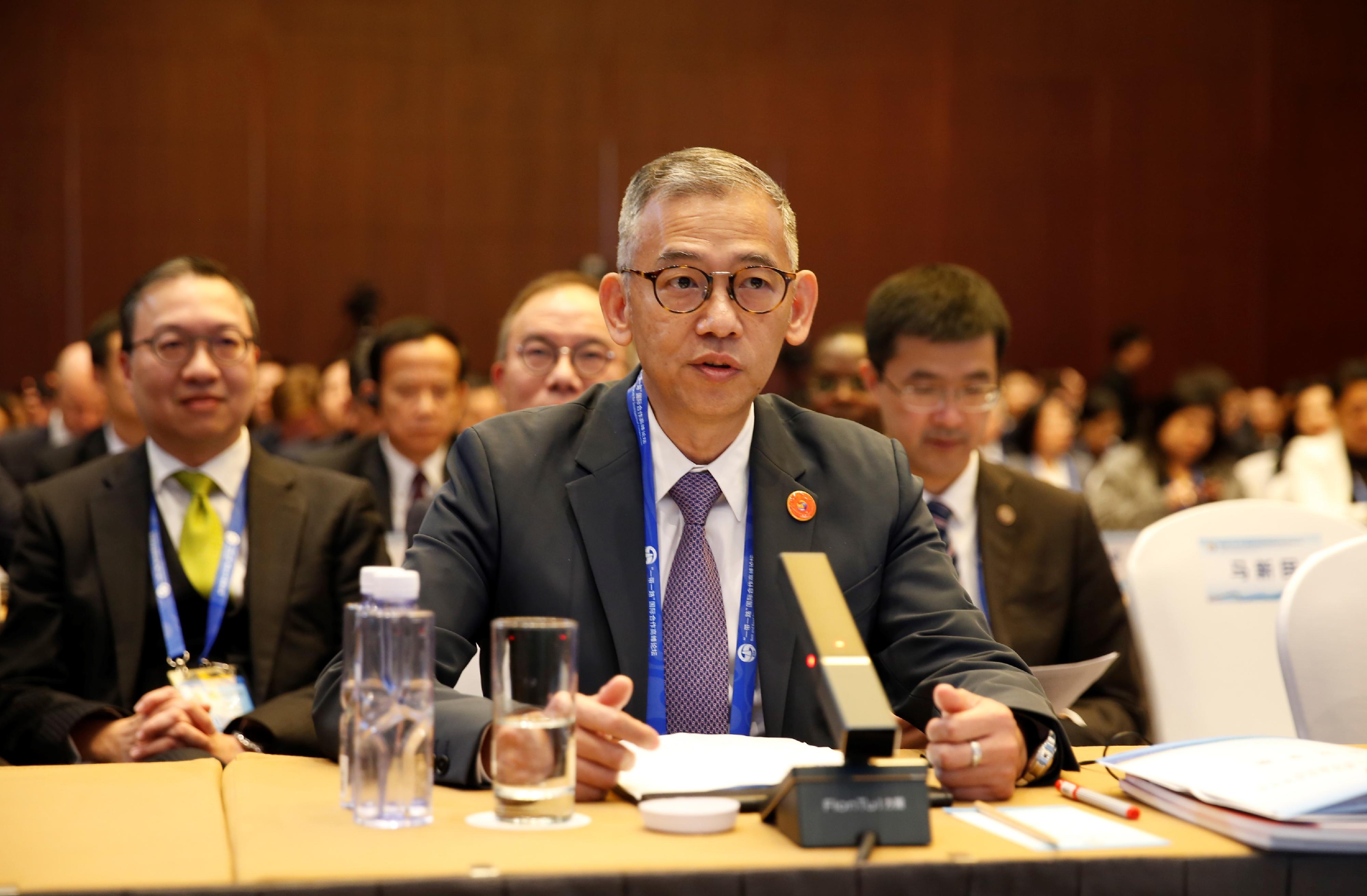CE’s speech at High-level Forum on Connectivity of third Belt and Road Forum for International Cooperation in Beijing (with photos/ video)
Following is the speech (English translation) by the Chief Executive, Mr John Lee, at the High-level Forum on Connectivity of the third Belt and Road Forum for International Cooperation in Beijing today (October 18):
Excellencies, distinguished guests, ladies and gentlemen,
Good afternoon. I am pleased to attend today's High-level Forum on Connectivity to discuss with you how we can deepen the development of "hard connectivity" – connectivity on infrastructure, as well as "soft connectivity" – connectivity on regulations and standards. Both of them are crucial to furthering the Belt and Road Initiative.
Under "one country, two systems", Hong Kong has the distinctive advantages of enjoying the Mainland's strong support and being closely connected to the world. Geographically, Hong Kong is the southern gateway of our country, China, and can reach half of the world's population within five hours of flight, well-positioned as a regional connectivity hub.
Our Hong Kong International Airport is the world's busiest cargo airport, handling some 4.2 million tonnes of cargo last year. Our Hong Kong Port is one of the 10 busiest container ports in the world, handling some 17 million twenty-foot equivalent units of containers last year.
Hong Kong has already signed air services agreements or air services transit agreements with some 50 participating countries of the Belt and Road Initiative. On land transport, Hong Kong is connected with the over 40 000 kilometre‑long national high speed rail network. This, coupled with the landmark Hong Kong-Zhuhai-Macao Bridge, facilitate interaction and underpin close economic ties between Hong Kong and different places in Mainland China.
The Guangdong-Hong Kong-Macao Greater Bay Area is composed of the two special administrative regions of Hong Kong and Macao as well as nine cities in Guangdong Province. Hong Kong is fully committed to facilitating the provision of an efficient and well-connected sea, land and air transportation network in the Greater Bay Area, so as to create a "one-hour living circle" which is ideal for living, working and travelling, and in turn, offers crucial support for the joint development of the Belt and Road.
We will continue to serve as a premier gateway for passengers and goods from all over the world to the Mainland and vice versa, and help to promote the joint development of "hard connectivity" of transport infrastructure for Belt and Road countries.
Meanwhile, we attach great importance to the development of "soft connectivity" under the Belt and Road Initiative. Hong Kong people are biliterate and trilingual, and well versed in the business environment and culture of both the international community and Mainland China. Hong Kong's diversified professional services are among the world's best. We are pressing ahead with the high-quality development of Belt and Road projects concerning such areas as engineering, construction, accounting, insurance, investment and financing, and legal and dispute resolution. Through co-operation and sharing of innovation experience, we are seeking to achieve connectivity in professional fields.
Hong Kong serves not only as a two-way platform between Mainland China and other Belt and Road countries, but also as a key link for the Belt and Road, and even global, investment and economic and trade networks.
Hong Kong boasts a substantial foreign currency deposit base and trade volume, and is the world's largest offshore Renminbi hub. Hong Kong has long been an ideal corporate treasury centre for Belt and Road projects and the prime platform for issuance of bonds and related products. The city provides an important channel for connectivity of capital under the Belt and Road Initiative.
Moreover, Hong Kong has been contributing to fostering people-to-people bonds for Belt and Road countries. Hong Kong is an East-meets-West centre for international cultural exchange, and also a dynamic Asia's world city. We have a wealth of museums and exhibition resources. Located at West Kowloon Cultural District, the Hong Kong Palace Museum, which showcases treasures from the Forbidden City, and the M+, which is Asia's first global museum of contemporary visual culture, have become must‑see attractions for both local and inbound visitors.
As our tourism industry sees a strong recovery, we look forward to welcoming friends from our Belt and Road partners to Hong Kong. Together, we can enhance mutual learning and build a global community of shared future in this free and open city.
In the years to come, Hong Kong will spare no effort to strengthen infrastructure connectivity and financial integration with different Belt and Road countries, develop bilateral and multilateral economic and trade relations with our Belt and Road partners and, by doing so, help enhance the connectivity between our country and the world.
In closing, I wish the forum a great success. Thank you.
